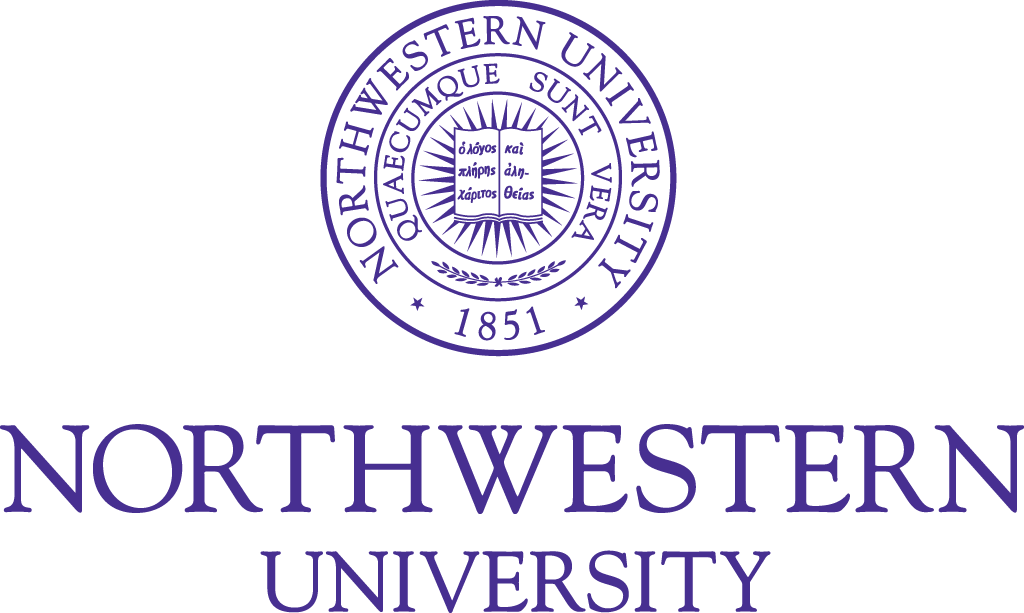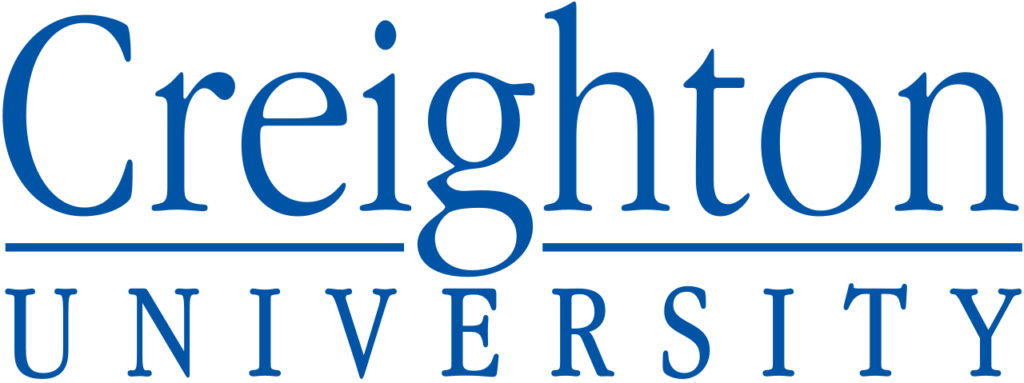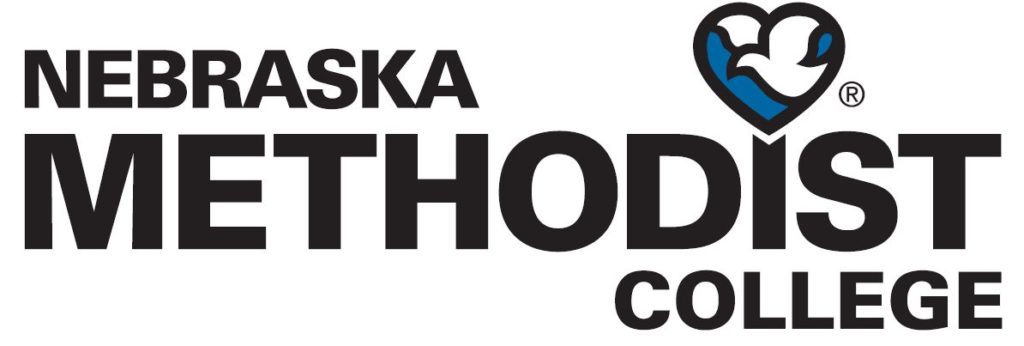Catapult your education to the next level by earning an online master’s degree in health and wellness!
Are you a healthcare professional who’s looking to build skills in health care leadership, management, holistic practices, or advocacy? Or are you an undergraduate that wants to continue your education with an advanced degree?
Whether you are interested in personal health, integrative health practices, want to be a certified health education specialist, or are involved in a health education program you will find an online degree that will work for you. We can all benefit from healthier lifestyles!
The colleges and universities listed below can help train you for the unique challenges for careers in today’s health and wellness space. Keep reading to see if an online master’s degree in health and wellness is the right next step for you.
See Also: Ultimate Guide to Health and Wellness
What is an Online Master’s Degree in Health and Wellness Education?
You can customize any online health and wellness program to meet the unique goals of your situation. However, typically, a health and wellness master’s degree will integrate expertise in business, administration, policy, and practice regarding the health and wellness industry.
These programs are meant to elevate the expertise and career of an existing health care professional, such as nurses, doctors, therapists, veterinarians, naturopaths, and pharmacists. Additionally, these online master’s degrees in health and wellness give undergraduate students the chance to pursue higher-level studies that enable them to pursue careers in health and wellness.
With this degree, you can increase your knowledge, augment an existing practice, or further specialize your talents towards your personal and career goals.
See Also: 20 Great Health and Wellness Degree Scholarships
How Much Can You Earn With an Online Master’s Degree in Health and Wellness?
A master’s degree in health and wellness enables its graduates to apply to numerous occupations, so earnings vary. With that said, pursuing a job as a pharmacist, physician’s assistant, medical or health services manager, or a social and community service manager benefits the most from this extended degree.
According to the U.S. Bureau of Labor Statistics, medical and health services managers made a median salary of $104,280 in 2020, while pharmacists earned a median salary of $128,710, and physician assistants earned a median wage of $115,390 annually. Despite the additional degree and training required for nutritionist jobs, these workers often make lower earnings and were at just $63,090 in 2020.
See Also: Why Are Health and Wellness Important?
What is Required for an Online Master’s Degree in Health and Wellness?
To obtain an online master’s degree in health and wellness, applicants are usually required to already hold a bachelor’s degree in a related field. Upon completion of the bachelor’s program, you will need to earn around 30-39 credits in an accredited master’s program to earn your degree.
Universities typically require GRE scores, letters of recommendation, an essay or statement of purpose, and other documentation to apply. Make sure you check each school’s requirements to ensure you aren’t missing anything, as the requirements for admission can vary significantly from one institution to the next.
Two years is the standard timeframe to get a master’s in health and wellness, but online education offers more flexibility, so you can extend or shorten this time frame to fit your schedule. Several programs in our rankings require just one to one-and-a-half years to complete.
See Also: Ultimate Guide to Maintaining Mental Health for College Students
What are the Best Online Master’s Degrees in Health and Wellness?
To determine the best online degree programs, we use seven data points to rank and compare programs.
Two of these data points are specific to the program – number of degree options (10% of the total score) and the median earnings two years after graduation (15% of the total score).
The remaining five data points look at the institution as a whole. These criteria are:
- Admission Rate (10%)
- Graduation Rate (20%)
- Median Debt Upon Graduation (10%)
- Student Satisfaction (15%)
- Type of Accreditation (20%)
Each school’s individual and cumulative scores are clearly displayed. This gives you the opportunity to see how each program stacks up against the other programs on the list. To assist in organizing the schools, we’ve listed them from highest to lowest cumulative score.
“Not reported” means a school did not release that particular information to the US Department of Education. Otherwise, data is pulled from a variety of education websites. A more detailed description of the OSR process can be found on the methodology page.
Let us help with the school search!
1.Online Master of Science in Global Health

Quick Facts:
- Length: 36 credits
- Time to complete: 2 years (if attending full-time)
- Format: Online
- Tuition: $1,118 per credit
- The focus of this multidisciplinary program is to learn how to overcome challenges in various healthcare settings in order to improve healthcare outcomes.
Online Program Information:
- Number of Degree Options: 1
- Median Earnings Two Years After Graduation: $59,271.50
School-Wide Information:
- Admission Rate: 9%
- Graduation Rate: 95%
- Median Debt Upon Graduation: $19,548.50
- Student Satisfaction: 4.3 out of 5 stars
- Type of Accreditation: Regional (2 out of 2 points)
OSR Score: 93.33
With an OSR score of 93.33, this online master’s degree from Northwestern University is ranked the highest on this list.
Many different factors contributed to this score. Northwestern graduates enjoy low debt upon graduation and high median earnings two years after graduation. Likewise, Northwestern has a very high graduation rate of 95% and a high student satisfaction rate of 4.3 out of 5 stars.
This program includes nine core courses and three electives. Core courses include:
- Foundations of Global Health
- Biostatistics and Epidemiology
- Research Methods
- Global Health Systems
- Global Bioethics
- Globalization & Public Policy
- Grant Writing and Fundraising
- Global Health Leadership
The core courses also include a three-credit practicum experience in which you must apply what you’ve learned in the program in a real-world setting.
Northwestern gives you various options for completing the practicum experience. This includes working with local organizations, partner programs abroad, and even working on the practicum component in a virtual environment.
2.Online Master of Science in Health and Wellness Management

Quick Facts:
- Length: 36 credits
- Time to complete: 2 years (if attending full-time)
- Format: Online
- Tuition: $740 per credit
- You do not need to take any tests (including the GRE) to be admitted to this program.
Online Program Information:
- Number of Degree Options: 1
- Median Earnings Two Years After Graduation: $50,075.50
School-Wide Information:
- Admission Rate: 57%
- Graduation Rate: 86%
- Median Debt Upon Graduation: $23,375.00
- Student Satisfaction: 4.5 out of 5 stars
- Type of Accreditation: Regional (2 out of 2 points)
OSR Score: 85
The curriculum for this online master’s degree in health and wellness management from the University of Wisconsin system offers a dual-track focus.
On the one hand, this program offers coursework that will help you learn the fundamentals of health and wellness. On the other hand, you’ll learn crucial methods for managing health and wellness programs, including learning how to:
- Manage budgets
- Assess program performance for improvements
- Strategically plan programs for maximum impact
Additionally, you’ll learn about critical legal and policy issues. You’ll also explore the relationship between the public health system, providers and patients, and other stakeholders.
In addition to classroom coursework, you will also be required to complete a capstone course. The capstone course typically takes place in the final semester of the program and gives you a chance to take the helm of a health and wellness-related project in a real-world situation.
With a student satisfaction rate of 4.5 out of 5 stars, the University of Wisconsin system has the highest such ranking on our list.
3.Online Master of Science in Fitness and Wellness Leadership

Quick Facts:
- Length: 30-33 credits
- Time to complete: 1-2 years
- Format: Online
- Tuition: $628.33 per credit (in-state); $753.89 per credit (out-of-state)
- Completing this online master’s degree program will prepare you for pursuing multiple certifications, including MFA Fitness Facility Director, ACSM-Certified Personal Trainer, and Senior Fitness Association Certifications, to name a few.
Online Program Information:
- Number of Degree Options: 1
- Median Earnings Two Years After Graduation: $45,161
School-Wide Information:
- Admission Rate: 61%
- Graduation Rate: 67%
- Median Debt Upon Graduation: $21,875
- Student Satisfaction: 3.6 out of 5 stars
- Type of Accreditation: Regional (2 out of 2 points)
OSR Score: 73.34
The State University of New York College at Plattsburgh’s online master’s degree in fitness and wellness leadership prepares you to pursue any number of occupations. Graduates of this program work in wellness facilities, training facilities, hospitals and other healthcare settings, schools, and senior centers, to name a few.
This wellness degree program is 30-33 credit hours, making it among the shortest on this list. Many students in this program complete it in as little as one year.
The courses you will complete include:
- Physiology
- Biomechanics
- Resistance and strength training
- Fitness management
- Accounting
- Marketing
With both health/wellness and business courses integrated into the degree, you will graduate with the practical knowledge you need to build a fitness or wellness business of your own.
There is also an optional three-credit field internship that you can take if you wish to get some real-life work experience prior to graduating.
4.Online Master of Science in Integrative Health and Wellness

Quick Facts:
- Length: 36 credits
- Time to complete: 2 years (if attending full-time)
- Format: Online
- Tuition: $995 per credit
- This degree program is approved by the National Board for Health & Wellness Coaching.
Online Program Information:
- Number of Degree Options: 1
- Median Earnings Two Years After Graduation: $42,223.50
School-Wide Information:
- Admission Rate: 64%
- Graduation Rate: 76%
- Median Debt Upon Graduation: $23,098.50
- Student Satisfaction: 3.8 out of 5 stars
- Type of Accreditation: Regional (2 out of 2 points)
OSR Score: 73.33
Creighton’s online master of science in integrative health and wellness is a two-year graduate program that prepares you for many different career paths.
There are two separate tracks available. The first is in Health and Wellness Coaching and the second is in Healthy Aging. If you select the Healthy Aging track, you will actually complete both concentrations without any extra credits required.
Regardless of which track you choose, upon graduation, you will be eligible to sit for the Health and Wellness Coaching examination that’s offered by the National Board for Health and Wellness Coaching. This is a national certification that gives you the credentials you need to provide competent service to your clients.
To be admitted to this program, you must have a bachelor’s degree (in any area) with a minimum GPA of 3.0 on a 4.0 scale. You might also have to participate in a personal interview.
This is a respected program from a respected university, but that comes at a price. At nearly $1,000 per credit hour, this is one of the most expensive options on our list.
5.Online Master of Arts in Wellness and Lifestyle Management

Quick Facts:
- Length: 30 credits
- Time to complete: 1-2 years
- Format: Online
- Tuition: $762 per credit
- In addition to earning a master’s degree in this program, you can also choose to get a Certificate of Graduate Study in Wellness Coaching. Doing so does not require any additional coursework.
Online Program Information:
- Number of Degree Options: 1
- Median Earnings Two Years After Graduation: $45,571.50
School-Wide Information:
- Admission Rate: 78%
- Graduation Rate: 75%
- Median Debt Upon Graduation: $21,875
- Student Satisfaction: 3.6 out of 5 stars
- Type of Accreditation: Regional (2 out of 2 points)
OSR Score: 70
With just 10 three-credit courses required, the online master’s degree in wellness and lifestyle management from Rowan University is one of the shortest on this list.
The first nine courses can be taken in any order, which gives you a little more flexibility in terms of your scheduling. The tenth course in the sequence is your choice of three capstone experiences:
- A capstone project
- An internship in wellness and lifestyle management
- A practicum in wellness coaching
Regardless of which experience you choose, you’ll have the opportunity to apply what you’ve learned throughout the program to solve real-world problems.
This program is designed to prepare graduates to work with individuals, couples, and families, in hospitals and other healthcare settings, schools, and in communities at large. Students in this program come from a wide range of educational and professional backgrounds as well.
6.Online Master of Science in Master of Science in Wellness and Health Promotion Management

Quick Facts:
- Length: 36 credits
- Time to complete: 21 months (if attending full-time)
- Format: Online
- Tuition: $719 per credit
- Courses in this program are taken one at a time. Each course is 5-10 weeks in length with scheduled breaks every five weeks.
Online Program Information:
- Number of Degree Options: 1
- Median Earnings Two Years After Graduation: $45,664.50
School-Wide Information:
- Admission Rate: 92%
- Graduation Rate: 77%
- Median Debt Upon Graduation: $17,096.5
- Student Satisfaction: 3.4 out of 5 stars
- Type of Accreditation: Regional (2 out of 2 points)
OSR Score: 70
Nebraska Methodist College’s online master of science program is aligned with the National Commission for Health Education Credentialing (NCHEC) Areas of Responsibility. These areas are required for students that wish to take the CHES credentialing exam.
To help you prepare for a future career in the health or wellness space, this program offers two tracks – worksite and community wellness and medical fitness management.
If you select the worksite and community wellness track, you’ll complete four WellCert professional certifications as part of your studies. These certifications include:
- Certified Worksite Wellness Program Consultant (CWWPC)
- Certified Wellness Program Manager (CWPM)
- Certified Wellness Program Coordinator (CWPC)
- Certified Wellness Program Director (CWPD)
If you choose to pursue the medical fitness management track, you will be prepared to sit for the Fitness Facility Direction Certification exam, which is offered by the Medical Fitness Association. This degree program is the only graduate program in the United States with this alignment.
7.Online Master of Science in Nutrition and Wellness

Quick Facts:
- Length: 33 credits
- Time to complete: 1.5-2 years (if attending full-time)
- Format: Online
- Tuition: $750 per credit
- This program is a combination of nutrition science and wellness studies. Classes are taken one at a time so you can focus on learning each topic more thoroughly.
Online Program Information:
- Number of Degree Options: 1
- Median Earnings Two Years After Graduation: $42,763.50
School-Wide Information:
- Admission Rate: 61%
- Graduation Rate: 58%
- Median Debt Upon Graduation: $24,956.50
- Student Satisfaction: 3.2 out of 5 stars
- Type of Accreditation: Regional (2 out of 2 points)
OSR Score: 66.67
Benedictine University’s online master’s program in nutrition and wellness offers two distinct learning tracks.
The first is a health education and promotion concentration that’s aligned with health education competencies. If you’re interested in working in a school setting, healthcare, or in community health, this is a great option.
The second track is in Nutrition Entrepreneurship. This track gives you the needed knowledge and experience to start your own nutrition or wellness-based business.
Courses that you will take as part of this program include:
- Dimensions of Wellness
- Nutrition Communication Through Technology
- Maternal and Child Nutrition
- Obesity
- Complementary Nutrition Therapies
- Research Methods
This unique program focuses on cultural and environmental influences on health. The courses you take are research-based and explore a range of nutrition and wellness issues that are important for today’s world, like obesity, developing healthy eating habits, and the need for improved health education.
8.Online Master of Science in Health and Human Performance

Quick Facts:
- Length: 30 credits
- Time to complete: 1-2 years (if attending full-time)
- Format: Online
- Tuition: $315 per credit
- This online master’s degree program offers two different specialization tracks that allow you to customize your studies to your interests.
Online Program Information:
- Number of Degree Options: 1
- Median Earnings Two Years After Graduation: $28,122
School-Wide Information:
- Admission Rate: 81%
- Graduation Rate: 67%
- Median Debt Upon Graduation: $17,465.5
- Student Satisfaction: 3.5 out of 5 stars
- Type of Accreditation: Regional (2 out of 2 points)
OSR Score: 65
The online master’s program in health and human performance from the University of the Cumberlands is a 30-credit program that can be completed in as little as one year.
With a per-credit tuition of just $315, this program is the least expensive on this list. Combined with the short timeframe of completion and an excellent median debt upon graduation, this degree could be a good option for budget-conscious students.
However, the median earnings two years after graduation is very low compared to many other programs on this list. It should be noted, though, that the earnings figure for the University of the Cumberlands is for all students, not just those graduating from this specific online master’s program.
Program features include two specialization tracks – one in health and fitness promotion and the other in coaching and fitness leadership. Regardless of which specialization you pursue, you will gain the relevant knowledge and skills to assist other people in leading healthier lives and making choices that improve their wellness. If you are interested in health promotion and health promotion techniques, consider this degree in your program planning.
9.Online Master of Science in Food and Nutrition

Quick Facts:
- Length: 39-40 credits
- Time to complete: 2 years (if attending full-time)
- Format: Online
- Tuition: $445.40 per credit (in-state); $456.40 per credit (out-of-state)
- This program offers studies in weight management, nutrition through the lifecycle, food science, and sports nutrition, to name a few.
Online Program Information:
- Number of Degree Options: 1
- Median Earnings Two Years After Graduation: $41,790.50
School-Wide Information:
- Admission Rate: 75%
- Graduation Rate: 57%
- Median Debt Upon Graduation: $22,000
- Student Satisfaction: 3.9 out of 5 stars
- Type of Accreditation: Regional (2 out of 2 points)
OSR Score: 63.33
A crucial component of health and wellness is food, and that’s precisely what you’ll study in this health and wellness program from Bowling Green State University.
Over the course of this program, you’ll complete 39-40 credits (which is the most required of any program in this ranking). This includes both major area studies and cognate, or minor, courses, with each class lasting seven weeks. The minor courses delve into topics that can be tailored to your specific interests. This includes:
- Psychology
- Education and scientific writing
- Public health
- Clinical nutrition
- Exercise physiology
Furthermore, you will complete coursework in statistics and research methods. You must also complete a thesis, or you can choose to take a comprehensive exam or undertake a master’s project.
With start dates throughout the year, this program offers the flexibility of starting your studies when the timing is right for you.
10.Online Master of Arts in Health and Wellness Coaching

Quick Facts:
- Length: 30 credits
- Time to complete: 1-2 years
- Format: Online
- Tuition: $892-916 per credit
- This program adheres to the trimester system. To complete your studies, you’ll need to attend five trimesters of school.
Online Program Information:
- Number of Degree Options: 1
- Median Earnings Two Years After Graduation: Not Reported*
School-Wide Information:
- Admission Rate: 49.22%**
- Graduation Rate: 58.11%**
- Median Debt Upon Graduation: Not Reported*
- Student Satisfaction: 3.2 out of 5 stars
- Type of Accreditation: Regional (2 out of 2 points)
*This information is not available on the U.S. Department of Education’s College Scorecard website. As such, a score of zero has been entered for these criteria.
**These figures include a penalty (the average of all other programs on this list minus 15 percent) because the information is not available on the College Scorecard website and the College Navigator from the National Center for Education Statistics.
OSR Score: 43.33
This 30-credit program from the Maryland University of Integrative health is split into two parts. The first part includes 15 credit hours of study in core health and wellness coaching. There is also a practical skills assessment associated with this portion of the program.
The second part of the degree is a 15-hour block of advanced coursework. These courses will give you the higher-level knowledge and skills that are needed to practice competently in the health and wellness space. Advanced courses include:
- Cultural competence
- Advanced coaching skills
- Group coaching
- Research Literacy
- Evidence-informed practice
Additionally, there is a final course project that allows you to integrate your learning throughout the program and apply it in a single setting.
By successfully completing this program, you will be eligible for two credentials, one by the International Coaching Federation and the other by the National Board for Health and Wellness Coaching.
Honorable Mention:
Liberty University MA in Human Services- Health and Wellness
Liberty University offers a Master’s in Human Services. It is fully online program. Liberty University is accredited by SACSCOC. The program is 30 credited hours and can be completed in just one year.
Frequently Asked Questions
Health and Wellness Education
What Can I Do With a Master’s in Health and Wellness?
One of the benefits of most master’s degree programs in health and wellness is that they are flexible and versatile, which means they can lead to a wide range of careers. You may have interested in holistic nutrition, being a health educator, or human services these online programs will prepare students for a successful and fulfilling career.
On the one hand, most degree programs in this field offer flexible studies that allow you to focus your coursework in a particular area of interest. You might specialize in health promotion, health education, or health administration. Likewise, you might find specializations available in health and entrepreneurship, health promotion management, holistic nutrition, or community health.
In terms of jobs that these degrees and specializations might lead to, the possibilities are virtually endless. For example, you might pursue a career as a:
- Wellness coach, in which you would provide direction to clients for leading a healthier life with a focus on mental, physical, and emotional well-being.
- Public health director, in which you would oversee public health programs like providing vaccine clinics to community members or developing community health programs that educate people about health and wellness.
- Nutritionist, in which you provide clients with information about healthy eating habits, educate them about the relationship between food and health and help them manage various diseases.
These are just a few examples of possible careers. But this short list demonstrates what a wide-ranging field that health and wellness is. The key is to find a career path that fits your particular skills, interests, and employment goals.
What is the Job Outlook for Health and Wellness Occupations?
As noted in the introduction, there are various career pathways you can take with a master’s degree in health and wellness. But not all of those pathways offer the same level of expected growth in the coming years.
For example, if you pursue a job in the medical and health services management sector, you can expect jobs in that field to grow by 32 percent through the end of the decade. This is a very high growth rate that is much faster than the average for all occupations.
What is fueling the growth of jobs in this field is the aging population in the United States. As baby boomers get older, they will need more healthcare services. This means that working in the health and wellness field could be quite lucrative for years to come.
As a second example, if you want to use your education in health and wellness to become a health educator or a community health worker, you can expect that job growth in this field will occur at a 17 percent rate through the end of the decade.
While this is still faster-than-average growth, it’s a much lower growth rate than for medical and health services management. Nevertheless, it’s expected that there will be plenty of jobs available in health education and community health in the coming years.
You might also think about a career as a nutritionist. Though additional training will be required, a master’s degree in health and wellness is a great start.
Nutritionists will be in demand in the coming years, too. The BLS predicts that this field will grow by 11 percent through 2030. Again, this is not nearly as fast of growth as the other occupations discussed above, but it’s still a higher-than-average growth rate.
Do I Have to Be Certified to Work in Health and Wellness?
The answer to this question is, unfortunately, it depends.
While certifications might be required for some jobs in the health and wellness field, other jobs might not require certifications. Likewise, some jobs in this field might require state licensure while others may not.
But, as a rule of thumb, it’s generally a good idea to pursue professional certifications when possible. Though it requires an additional output of time and money beyond graduate school, having a certification (or multiple certifications) demonstrates to clients that you’ve gone above and beyond to learn as much as you can and perfect your craft.
Additionally, certifications might help you in finding jobs – many employers look favorably on applicants that are certified, even if certifications are not required for the position.





